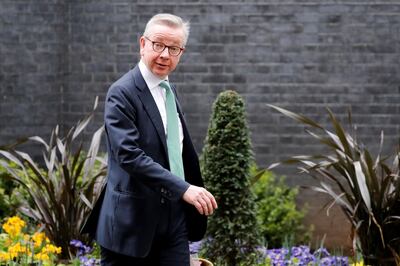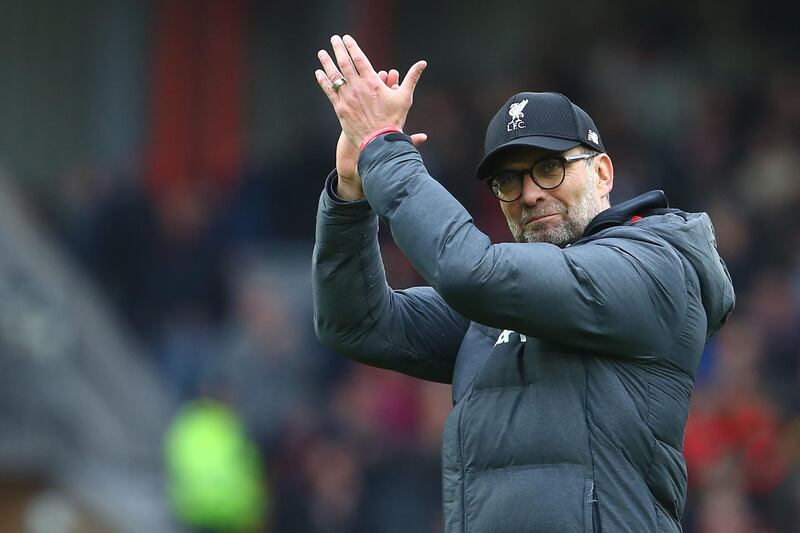Jurgen Klopp is one of the world’s most successful football managers and he is steering Liverpool FC to national and international success. But the German coach has made a social media splash for other reasons. Last week, Klopp was asked about coronavirus at a press conference. He responded that one of the things he doesn’t like in life is how important a football manager’s opinion seems on matters he knows very little about. When I heard the comment I cheered as loudly as I might if Liverpool scored a winning goal in extra time.
Klopp, a seriously good manager, was making a seriously important point at a football news conference. The world is full of experts on various subjects, but no one is an expert on everything. The world is also full of people with opinions. But the people with the strongest opinions are often very different from the ones with expertise. A clip on the US TV channel MSNBC makes the point.
The channel's presenter and another journalist discussed a tweet from a viewer commenting on the US election campaign and the embarrassing failure of former New York mayor Mike Bloomberg – one of the Democratic Party challengers – to make a big impact on the race despite spending $500 million of his own money.
The tweet said: “Bloomberg spent $500 million on ads. The US population is 327 million. He could have given each American $1 million and still have money left over. I feel like a $1 million check would be life-changing for most people. Yet he wasted it on ads and still lost.”
Three months ago, I entered the race to defeat Donald Trump. Today, I'm leaving for the same reason. Defeating Trump starts with uniting behind the candidate with the best shot to do it. It's clear that is my friend and a great American, @JoeBiden. pic.twitter.com/cNJDIQHS75
— Mike Bloomberg (@MikeBloomberg) March 4, 2020
Now this person has an opinion. And he – or she – also has a platform, Twitter, and has managed to get on another platform, a US TV news channel. But this opinion is based on not being able to complete a simple mathematical division and get the correct answer. Bloomberg could not have given every American one million dollars and still had change out of $500 million. He could have given them only one single dollar each, which would hardly be life changing. And yet all this is in a way very revealing of our media-saturated world. At the flick of a switch I can find talking heads on more TV and radio channels than I can count, never mind watch.

Social media acts as a public megaphone for anyone who cares to use it, including people whose opinions are simply factually wrong. The anti-vaccination movement is a case in point. While scientists are working round the clock to find a vaccination to deal with coronavirus, there are still plenty of websites which counter-factually decry vaccinations despite their proven success.
So, should the media adopt the Klopp approach – that expertise in one field of human endeavour does not make anyone an expert on another, in his case on the viral transmission of Covid-19? And should we start to value expert opinion much more while being less keen to put inexpert loudmouths on TV and radio merely because “everyone is entitled to their own opinion?” Well, possibly – and certainly everyone is not entitled to their own facts.
Klopp touches on a sensitive subject for broadcasters. British and American TV talk shows are stocked with articulate guests from impressively named think tanks, societies and institutions who are treated as if they are “experts” on various subjects, including economics and governance. But in some prominent cases they appear merely to be paid shills, PR men and women pushing an ideological or business agenda.
In some cases in Britain that agenda appears to be for lower taxes generally or on specific products like sugar in soft drinks. When these supposed “think tanks” and “experts” are asked about their expertise or about who funds them, they often fall into the trap Jurgen Klopp avoided – they pretend to know the facts when they have no more expertise than some random stranger you might meet on the street.
The very shrewd British government minister Michael Gove famously said during the 2016 Brexit campaign that “people in this country have had enough of experts.” Well, Mr Gove had a point. There is a profound disconnection between many ordinary British citizens and those experts who try to convey complex facts but are not very good at explaining themselves to a non-expert audience – and, to repeat, we are all “non-experts” in most things. Experts need to learn to communicate better, to explain complex subjects in simple language.

The Klopp conundrum however goes much further. Are TV and radio producers and presenters brave enough to say to every potential guest – “do you really know what you are talking about? What’s your expertise in this area?” – and if the potential guest has no expertise, perhaps think twice before giving them a platform? If having knowledge or some experience about the topic under discussion became compulsory I can think of a few political leaders we would never hear from again.
Gavin Esler is a journalist, author and presenter






